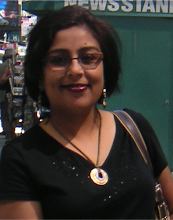I recently watched a Oprah show on medical misdiagnosis that made me ponder on my own thresholds and implicit boundaries for forgetting and forgiving.
A young woman came on the show and told her story. She had had a mastectomy and had 24 lymph nodes removed based on a biopsy report, which later turned out to be false (incorrect manual slide switch with another patient). The irony is that although her biopsy report had indicated cancer, it was nowhere to be found on her mammograms and ultrasound reports, and instead of doing a deep dive into that anomaly, her doctors deduced that she had a rare form of cancer which was showing up on her slide, but not on the imaging. In retrospect it appears that there was a strong opportunity of discovering the manual error, but it wasn't, because her medical team did not probe enough.
As a woman, I can empathize in a large way with the mental and physical trauma of ANY woman, who has to go under the knife and have her breast removed, even when she knows that it is the only way to save her life, but to endure that uberly painful irreversible process and then learn that it was based on an incorrect diagnosis, and therefore all a terrible waste? Would I ever be able to forgive something like that? My first thought was No- this one would never have passed my own litmus test. Such gross neglect and mis-treatment is equivalent to a heinous crime, and I would not consider it worth the dignity of forgiveness.
The woman on the show however, said she was so relieved to know that she did not have breast cancer, she was overjoyed, and although she was not asked the specific question, it appeared that she had actually forgiven.
I was initially stunned with her ability to forgive, which seemed almost superhuman, but she exhibited every quality of the ubiquitous ordinary woman- a mother, a wife, one who had been utterly scared by the threats of cancer, and who was angry at first at the misdiagnosis, but who ultimately acquired the discipline and strength to forgive, even though she certainly did not forget.
I have to admit that the stranger on the show, with her honest recount, has made me reconsider, and essentially made me believe that the capacity to forget and forgive is stretchable- that a human being does not live his or her entire life with one fixed threshold- that we should all be prepared to rise to the occasion when it demands it, and adjust the boundaries of our willingness to forgive.
